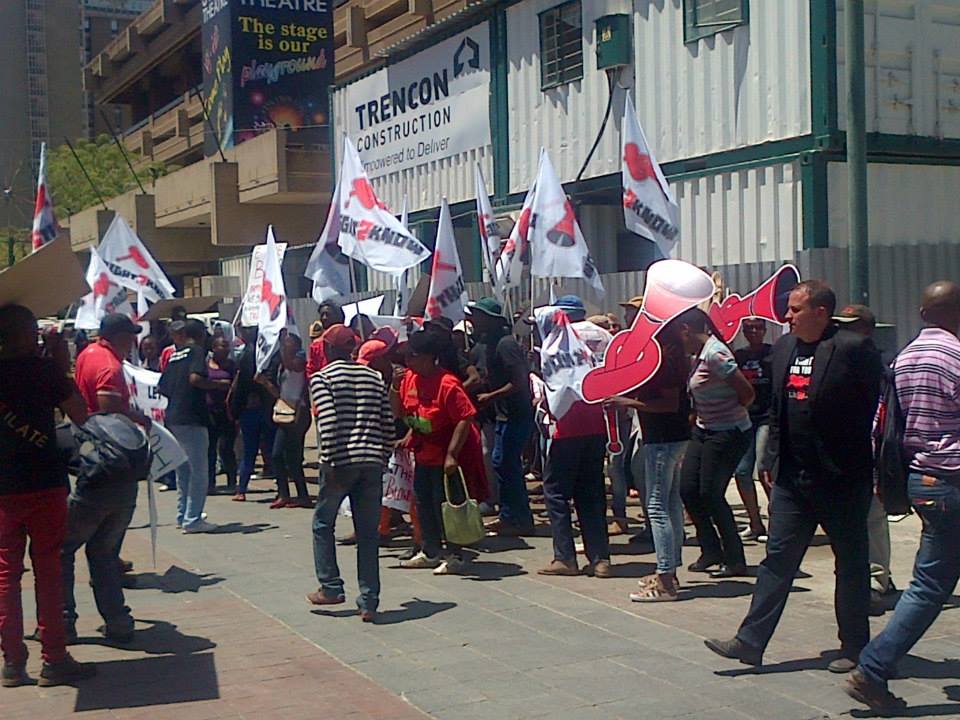Free airtime demands: operators respond
Right2Know, the organisation behind the campaign against the Protection of State Information, or “Secrecy” Bill, recently demanded a “free basic amount of airtime and data” from South Africa’s mobile network operators as part of its “Right2Call”, or Vula’ma Connexion campaign.
According to Right2Know, “the high cost of airtime and data undermines the democratising potential of the mobile network.”
When asked about Right2Know’s demands Vodacom and MTN confirmed that they received a memorandum from the group on 3 May 2013. Right2Know published the following summary of their demands:
Communications must be universal. Everyone has a right to communications that are available and affordable;
Everyone should get a free basic amount of airtime and data the same way that we have free basic water and electricity;
All SMS’s should be free as they cost the operators almost nothing to transmit;
ICASA must regulate the cost of airtime and data to stop profiteering;
Pre-paid communication users should not cross subsidise post-paid users;
SMS and data bundles should not expire if they are unused;
Cellphone companies must improve the quality of service, including network outages, dropped calls, calls that don’t connect, and data coverage, etc;
The range of numbers that are free to call (like police and ambulance) should be increased to include our children’s schools, hospitals, etc.
MTN SA’s chief corporate services officer, Robert Madzonga, said it highlighted to Right2Know that it operates in a regulated market and has always fully complied with the regulations issued by the Independent Communications Authority of South Africa (ICASA).
Madzonga said they also highlighted their contribution towards lowering of telecommunication costs.
Vodacom spokesperson Richard Boorman offered a similar response to questions about the Right2Call campaign, saying that Vodacom covers almost the whole South African population with its voice network.
“I’d say that we’re most definitely doing our part to ensure that everyone has access,” Boorman said. “The challenge from here is making sure that wherever we have voice coverage, that we also have data coverage.”
To that end Vodacom has been investing around R7-billion in its network per year over the last few years.
“We’d certainly appreciate any support the campaign could give to raise awareness about the conditions conducive to further investment and breaking down some of the barriers to that investment,” Boorman said.
Boorman then went on to address our questions regarding Right2Know’s demands:
1. What effect would it have if the first 5 demands were met?
[It is] very difficult to speculate, but it would run counter to the market economy principle in South Africa.
2. Is their assertion that pre-paid subscribers cross-subsidise post-paid subscribers accurate?
I don’t think you can make that determination in either direction. The pricing and offers vary on both pre-paid and post-paid. What you can say is that the average effective price per minute on pre-paid over the last 12 months was R0.72. For contract this number is significantly higher because the pricing includes the cost of providing a handset.
3. Is their assertion accurate that SMS costs “almost nothing” to transmit?
It ignores the fact that the network has to be built and maintained and the entire corporate infrastructure supported for anything to be transmitted.
4. Would you consider your QoS as good?
In response to this question, Vodacom provided the full text of its response to Right2Know, which contained the following:
The second point you bring up is network quality and you say that “Vodacom has consistently failed to meet ICASA’s quality–of-service targets”. I’m pleased to be able to say that the opposite is in fact true and that Vodacom has consistently exceeded ICASA’s prescribed quality of service targets.
Data roll-over
We didn’t ask specifically about the expiration of data bundles as South Africa’s network operators and Internet service providers have previously responded to these questions, explaining that data bundles that roll over indefinitely could cause prices to increase.
In its response to Right2Know, Vodacom wrote: “If there is no indication of when consumers plan to use the data, service providers will need to increase capacity quite significantly, with resultant increases in costs.”
Perhaps a more realistic demand would have been to support Shaun Dewberry’s campaign to have the business rules around bundle depletion changed.
Currently MTN and Vodacom give priority to recurring monthly data bundles.
This means that if you topped up with a once-off data bundle but didn’t finish it before the start of your next billing cycle, your newer recurring data bundle gets used before the previous top up bundle is depleted. This means that the top up data bundle might expire before you have a chance to use it all.
Cell C and Telkom Mobile were asked for their take on the Right2Know demands, but did not respond by the time of publication.
This article was written and published by My Broad Band on 13 June 2013



